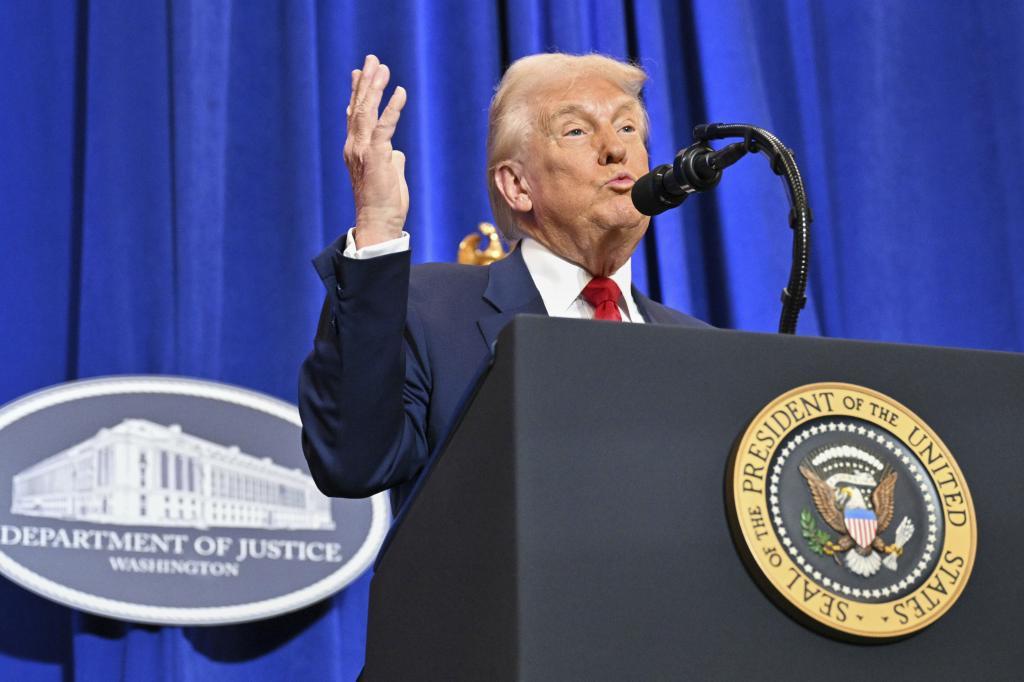"I don't usually agree with the Wall Street Journal, but as this newspaper says: Donald, even though you are a very smart guy, what you are doing is very foolish." The phrase was spoken by one of the leaders who, in case Trump has a list of personalities he can't stand, surely his name and surname appear at the top along with Volodimir Zelenski.
We are talking about the former Prime Minister of Canada, Justin Trudeau, one of the leaders who has suffered the American presidential hurricane that has been sweeping the planet for just eight weeks. Canada, in addition to receiving annexationist messages from its neighboring country, is continuously enduring the Trumpist lashes of tariffs. Hence Justin Trudeau's "very foolish" comment. Now, is this true? Will these tariffs backfire on the US?
Those working under the Trump Administration insist that, for him, tariffs are "a lever," a tool to achieve different objectives depending on the foreign power they are directed towards. In the case of China and Mexico, the goal is to combat the entry of fentanyl into the US, as well as illegal immigration. Regarding Canada, the angle is more commercial: Trump truly believes that Ottawa is taking advantage of Washington. And he feels a similar sense of deception with the European Union. But beyond what the Republican feels is a mockery by the arrogant Europeans, what Trump dislikes most is how Brussels handles technological matters, as well as its flirtations with China.
Trump's move is masterful, yet abusive: he manages to quickly and immediately fulfill (something the current society adores) the promises made during the electoral campaign in exchange for nothing. An absolute panacea... if it weren't for the rollercoaster of tariffs (up to 50%, down to 25%, up to 200%) destabilizing even the sender himself and harming the US economy, as we have seen this very week.
But let's look beyond what has happened in these recent 55 tumultuous days and try to discern what comes next. Trump will continue to view the world through his lens as a negotiator. For the Republican magnate, every country, region, or continent is a piece on a gigantic trade board where he participates and must win every game since he left the starting square again on January 20, 2025. This is recounted by one of his own, retired Lieutenant General Keith Kellogg, former Chief of Staff of Trump's National Security Council from 2017 to 2021 and current US Special Envoy for Ukraine and Russia (much to the Kremlin's dismay): "President Trump approaches diplomacy and engages in it in a very transactional way, with the economy as the basis and determining factor of international affairs."
"Trump is transactional," confirms Aaron David Miller, author and analyst who worked for 24 years at the US Department of State. "Trump seeks quick wins, deals, but nothing related to the incredibly difficult work of conflict resolution."
The US president will not stop: domestically and internationally. Internally, the battered Democratic ranks warn of a gradual erosion of American civil rights. Externally, Greenland, Panama, and Canada will remain under the magnate's radar, who will not hesitate to act if necessary. Sooner or later, he will focus on Asia, where a specific country, South Korea, anxiously awaits its turn for tariffs.
Seoul is so fearful that its interim president, Choi Sang-mok, has turned to the aforementioned Wall Street Journal to try to convince Trump through these pages not to unleash tariffs on them, traditional allies of the world's leading power. "South Korea's interim president, Choi Sang-mok, has not spoken with President Trump. But he desperately wants to," as revealed by this newspaper.
In conclusion, Trump asserts that power is right and might makes right. He prioritizes dollars over values and hard power over soft power. He seems to relish the famous quote by writer and analyst Jonathan Alter: "All presidents are a blind date." However, this is his second Administration, how can it still surprise us, how can we not anticipate, and how is it practically impossible for us to discern what is pure provocation from what is a serious measure or concerning project? Perhaps because he sees his new term in the Oval Office as his final game, in addition to deriving immense pleasure from what terrifies others: kicking down traditional barriers and peering into the abyss of a chaotic world without rules.
